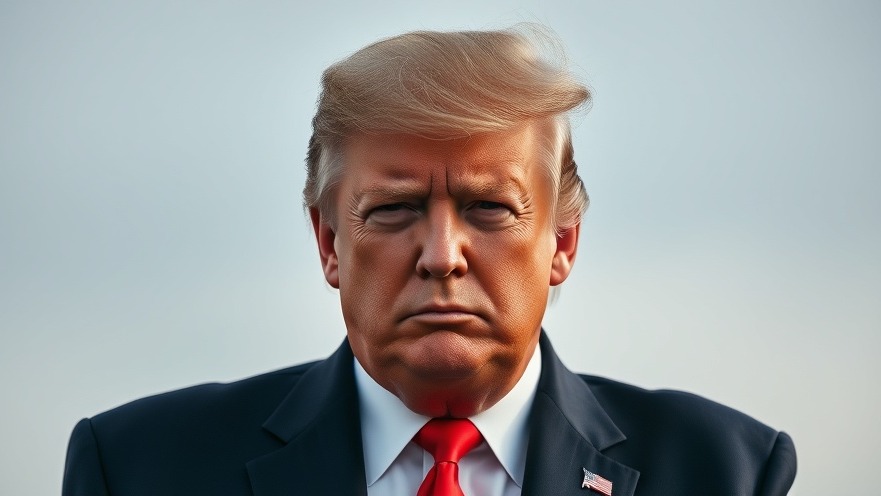
The Controversial Call for Intel's CEO Resignation
In a shocking turn of events, President Donald Trump has called for the resignation of Intel CEO Lip-Bu Tan, prompting a 3% decline in the tech giant’s stock. His post on Truth Social declared Tan as "highly conflicted," igniting debates over his leadership as he leads the company in an increasingly competitive tech landscape.
Background of the Call
The president's demand comes hot on the heels of concerns raised by U.S. Senator Tom Cotton regarding Tan's deep ties to various Chinese companies. In a letter addressed to Intel Chairman Frank Yeary, Cotton highlighted Tan's control over numerous Chinese corporations, some linked to the Chinese military, exacerbating fears surrounding national security and corporate governance. The senator pointed to specifics, citing past legal troubles experienced by Cadence Design Systems during Tan's previous tenure as CEO.
The Stakes for Intel
As a major player in the semiconductor industry, Intel is pivotal in the U.S. economy and technological advancement. Under Tan's leadership, the company aims to enhance its competitiveness, especially against rivals like AMD and NVIDIA. Yet, the threats of potential vulnerabilities associated with foreign ties have forced many stakeholders to rethink the implications of corporate governance and national security.
Understanding the Reactions
Trump's comments and the subsequent stock drop raise a myriad of questions amongst investors and tech enthusiasts alike. For many, this reaction is a reflection of the growing unease concerning foreign involvement in key industries. As discussions about the significance of securing the U.S. tech ecosystem intensify, the stakes couldn't be higher for semiconductor firms like Intel, a cornerstone of the American tech sector.
Public Opinion and Corporate Responsibility
The call for Tan's resignation also highlights a growing trend among the public and policymakers seeking greater corporate accountability, especially when related to national interests. As citizens become more concerned about the implications of foreign investments, companies may need to re-evaluate transparency practices to keep stakeholders informed and engaged.
Future Predictions and Insights
If pressure mounts for a leadership change, what would that mean for Intel's future? Would a new CEO be a front-runner in bolstering the company’s ties to American interests? Or would it signify instability during a time when innovation is critical? Only time will tell what ripple effects this situation will hold for Intel and the tech sector at large.
Potential Counterarguments
While many support Trump’s call for Tan to step down, others argue that this move may just create further instability. Critics are concerned that politicizing corporate leadership can lead to unintended consequences, potentially jeopardizing technological growth. Proponents of Tan cite his past achievements and industry knowledge, advocating for the importance of maintaining industry professionals in leadership roles regardless of external political pressures.
Final Thoughts on Leadership in Tech
The escalating political discourse around Intel's leadership is emblematic of the broader challenges major corporations face in today’s world. As technology continues to evolve rapidly, the balancing act between securing national interests and promoting innovation becomes increasingly complex. Stakeholders are encouraged to reflect on the implications of their decisions and continue advocating for accountability in corporate governance.
As this story unfolds, it’s crucial to stay informed about the intersection of technology, finance, and politics. For further updates and analyses on this situation, make sure to follow reliable news sources as they report the latest developments.
 Add Element
Add Element  Add Row
Add Row 



Write A Comment